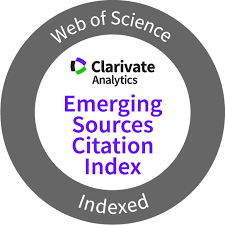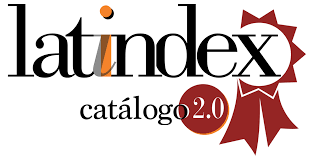Communicating External Voting Rights to Diaspora Communities. Challenges and Opportunities in the Cases of El Salvador and Costa Rica / Comunicando los derechos de votación en el extranjero a las diásporas. Los casos de El Salvador y Costa Rica
DOI:
https://doi.org/10.5783/revrrpp.v3i5.191Palabras clave:
transnational, political rights, diaspora communities, external voting rights, absentee voteResumen
Abstract. This paper fills a gap in the literature of international public relations by exploring the challenges that home governments face when trying to convey information about newly established political rights to diaspora communities located in host countries. It does so by analyzing the cases of El Salvador and Costa Rica, two Central American countries that will offer external voting rights (absentee vote) to their citizens, for the first time, in the national elections of 2014.
Resumen. Esta investigación explora los retos que los gobiernos nacionales enfrentan cuando tratan de comunicar información sobre los derechos de voto en el extranjero a sus diásporas en países huéspedes. Esta investigación analiza los casos de El Salvador y Costa Rica, dos países de Centroamérica que empezarán a ofrecer el derecho al voto en el extranjero a sus ciudadanos, por primera vez, en las elecciones del 2014.
Descargas
Citas
AGUNIAS, D. R. (Ed.). (2009). Closing the distance: How governments strengthen ties with their diasporas. Washington, D.C.: Migration Policy Institute.
BRAVO, V. (2011). Conceptualization of Diaspora Relations from the Government Viewpoint: An Exploratory Qualitative Study of Diaspora Relations in the Cases of Costa Rica and El Salvador. Doctoral dissertation. University of Florida.
BANDURA, A. (1994). Self‐efficacy. John Wiley & Sons, Inc.
BANDURA, A. (2010). Self-Efficacy. Corsini Encyclopedia of Psychology, pp. 1–3.
CALDERÓN CHELIUS, L (2003). Votar en la distancia. La extensión de los derechos políticos a migrantes, experiencias comparadas. México: Instituto Mora.
CANCILLERÍA ABRIRÁ cuatro nuevos consulados para recibir el histórico voto de los costarricenses que por primera vez votarán en el exterior (2013, March 6). Ministerio de Relaciones Exteriores y Culto de Costa Rica. Retrieved March 23, 2013 from http://www.rree.go.cr/index.php?sec=servicios%20al%20publico&cat=servicios%20de%20informacion&cont=593¬icia=1302
CAPRARA, G.V., VECCHIONE, M., CAPANNA, C., & MEBANE, M. (2009). Perceived political self-efficacy: Theory, assessment, and applications. European Journal of Social Psychology 39 (6), pp.1002-1020.
CRESWELL, J. W. (2007). Qualitative Inquiry and Research Design: Choosing among five approaches. Thousand Oaks, CA: Sage.
DÉLANO, A. (2010). Immigrant integration vs. transnational ties? The role of the sending state. Social Research, 77 (1), 237-268.
FUNES, M. (2011, May 30). Informe de segundo año de gestión ante Asamblea Legislativa [Video file speech]. Retrieved March 23, 2011 from http://www.rree.gob.sv/index.php?/transmisiones-en-vivo/vervideos/223/transmisiones-en-vivo/ministerio-de-relaciones-exteriores-presenta-logros-del-segundo-ano-de-gestion/Page-1.php
GAMLEN, A. (2008). The emigration state and the modern geopolitical imagination. Political Geography, 27, 840-856.
GILBOA, E. (2008). Searching for a theory of public diplomacy. The Annals of the
American Academy of Political and Social Science, 616(1), 55-77.
GLASER, B. G. & STRAUSS, A. L. (1967). The discovery of grounded theory: Strategies for qualitative research. New York: Aldine.
LAFLEUR, J.M. (2013). Transnational Politics and the State: The External Voting Rights. N.Y.: Routledge.
MARTÍNEZ-SALDAÑA, J. (2003). Los olvidados become heroes: The evolution of Mexico´s policies towards citizens abroad. In E. Østergaard-Nielsen (Ed.), International migration and sending countries: Perceptions, policies, and transnational relations (pp.33-56). Basingstoke, Hampshire: Palgrave Macmillan.
MOLLEDA, J.C. (2009). Global public relations. IPR (Institute for Public Relations) Essential Knowledge Project. Retrieved March 10, 2013 from http://www.instituteforpr.org/topics/global-public-relations/
NEWLAND, K. (2010, November). Voice after exit: Diaspora advocacy. Washington, D.C.: Migration Policy Institute.
PEW RESEARCH HISPANIC CENTER (2013a). Two-thirds of the Hispanic population is of Mexican origin. Retrieved March 23, 2013 from http://www.pewhispanic.org/2013/02/15/hispanic-population-trends/ph_13-01-23_ss_hispanics5/
PEW RESEARCH HISPANIC CENTER (2013b). Statistical portrait of Hispanics in the United States, 2011. Retrieved March 23, 2013 from http://www.pewhispanic.org/2013/02/15/statistical-portrait-of-hispanics-in-the-united-states-2011/#6
PRESIDENTE FUNES felicita a la Asamblea Legislativa por aprobar Ley del Voto de Salvadoreños en el Exterior (2013, January 24). El Salvador Presidencia de la República. Retrieved March 23, 2013 from
PORTES, A., and RUMBAUT, R. G. (2006). Immigrant America: A portrait. Berkeley: University of California Press.
SIVES, A. (2012). Formalizing diaspora-state relations: Processes and tensions in the Jamaican case. International Migration, 50 (1), 113-128.
VARADARAJAN, L. (2010). The domestic abroad. Diasporas in international relations. New York: Oxford University Press.
WAKEFIELD, R. I. (2007). Theory of international public relations, the internet, and activism: A personal reflection. Journal of Public Relations Research, 20(1), 138-157.
YUN, S-H. (2012). Relational public diplomacy: The perspective of sociological globalism. International Journal of Communication 6, 2199-2219.
ZAHARNA, R. S. (2009). Mapping out a spectrum of public diplomacy initiatives:
Information and relational communication frameworks. In N. Snow & P. M. Taylor (Eds.),
Routledge Handbook of public diplomacy (pp. 86-100). New York: Routledge.
Descargas
Publicado
Cómo citar
Número
Sección
Licencia
Los autores que publican en esta revista están de acuerdo con los siguientes términos:- Los autores conservan los derechos de autor y garantizan a la revista el derecho de ser la primera publicación del trabajo al igual que licenciado bajo una Creative Commons Attribution License que permite a otros compartir el trabajo con un reconocimiento de la autoría del trabajo y la publicación inicial en esta revista.
- Los autores pueden establecer por separado acuerdos adicionales para la distribución no exclusiva de la versión de la obra publicada en la revista (por ejemplo, situarlo en un repositorio institucional o publicarlo en un libro), con un reconocimiento de su publicación inicial en esta revista.
- Se permite y se anima a los autores a difundir sus trabajos electrónicamente (por ejemplo, en repositorios institucionales o en su propio sitio web) antes y durante el proceso de envío, ya que puede dar lugar a intercambios productivos, así como a una citación más temprana y mayor de los trabajos publicados (Véase The Effect of Open Access) (en inglés).




